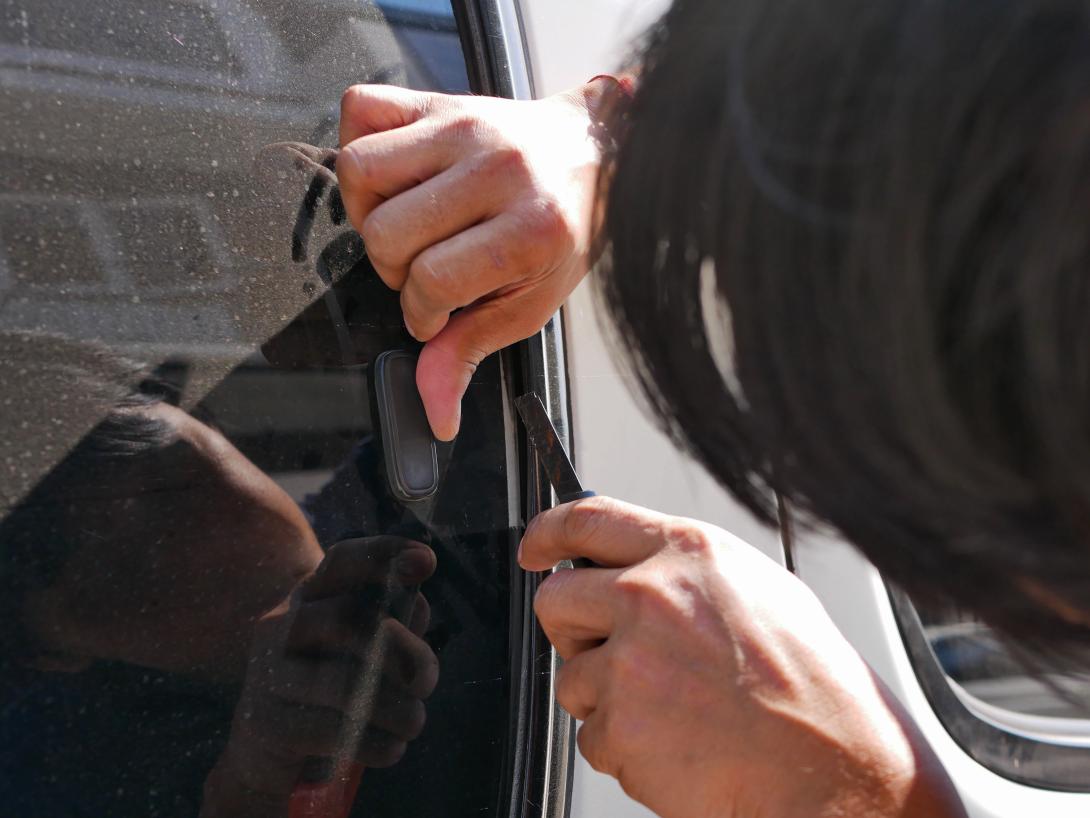Vans and their contents are regularly targeted by criminals, with costly and damaging implications for business operators. Denise Beedell from Logistics UK takes an in-depth look at van crime and how its reporting can be improved
Vans play a vital role in the UK economy, with more than four million of them currently registered on the UK’s roads. Since the COVID-19 pandemic, van operators have stepped up to meet significantly increased demands for online deliveries to our homes and have ensured essential services and utilities are kept running. However, vans and their contents are regularly targeted by criminals with costly and damaging implications for business operators, which is why vehicle security was raised as a significant issue for operators at Logistics UK’s Van Policy Working Group.
In August this year, Logistics UK launched a Van Security Survey to investigate the nature and scale of the issue. In this article Denise Beedell, Logistics UK’s Policy Manager for Vans and Urban, will discuss the results of the survey and the impacts of these crimes on business operators.
The survey results suggest that thieves target locations where they know vans are kept overnight with 47.8% of respondents citing a drivers’ home driveway as the most common location for a van to be stolen. This contrasts to van contents thefts, where the most common location was on-street parking near the driver’s home; perhaps demonstrating a less targeted approach and more of an opportunistic crime. Very few contents thefts were as a result of a van being left unlocked or open, instead thieves mostly broke into vans by smashing windows or using cutting equipment to gain access to the load compartment as quickly as possible. And unfortunately, almost 65% of those who experienced van-related crime said their vehicles sustained significant damage.
Van content theft has cost businesses £4,250 on average in the last 12 months, and the impact on operators is significant with 58% of survey respondents also reporting productivity loss. The additional time needed to sort replacement vehicles, equipment, file police reports and insurance claims reduces operational efficiency. It can also cause potential staff and customer retention difficulties. A worrying 61% of respondents reported contents thefts having a negative impact on drivers and even more worrying, was that in almost one in eight contents thefts, the driver, or an employee, was threatened.
Van operators are keen to protect their employees and business assets; 80% of respondents said that they would pay extra for additional factory-fitted security measures. This send a clear message for Logistics UK to work with vehicle security equipment manufacturers, as well as van manufacturers, to explore what security features should be developed to make new vans more secure.
Respondents are already taking steps themselves to minimise van-related crime by installing additional security features and undertaking regular driver training, something which may explain why van thefts fell in 2019 by 4.8% and van content thefts fell by 10% from the 2018 peak. Freedom of Information requests submitted to police forces across the country, showed that the number of recorded incidents of contents theft from vans and light commercial vehicles in 2018 was 31,892 but this figure fell to 28,717 in 2019. Whilst all the measures implemented by respondents may be a possible reason for the fall, it may also be a consequence of the way van crime is reported and recorded by different police forces.
Currently, individual police forces can decide how to categorise vehicle thefts, which means they can be included in crime records for private car – or even campervan – thefts, resulting in an incomplete picture of the extent of commercial van-related crime. Therefore, Logistics UK is calling on the Home Office to allocate a specific national crime reporting code for all commercial van thefts and thefts from vans, in order to better understand the scale and reach of these crimes and ultimately support better allocation of police resources.
Additionally, the process for reporting these crimes can vary from force to force. So, Logistics UK is calling for a UK-wide standardised reporting method – preferably online – to provide a simpler, more consistent, reporting mechanism for operators as they often operate across different force boundaries. This will also help to increase reporting levels which will ensure there is a more accurate picture of these types of crimes. It was reassuring that almost all respondents (96%) who had a van stolen in the last 12 months said they had reported the theft to the police. Reporting of all van and content thefts is vital, even if an insurance claim is not being submitted, so that government and law enforcement agencies understand the true extent of these crimes.
Using the results of the survey, Logistics UK will be engaging with crime reduction agencies, government departments, manufacturers of vehicles and vehicle security equipment, as well as calling on social media platforms to remove instructional content for committing van-related crime, to minimise the levels of crime that affects this vital sector.
Logistics UK (formerly FTA) is one of the UK’s leading business groups, representing logistics businesses which are vital to keeping the UK trading, and more than seven million people directly employed in the making, selling and moving of goods. With COVID-19, Brexit, new technology and other disruptive forces driving change in the way goods move across borders and through the supply chain, logistics has never been more important to UK plc. Logistics UK supports, shapes and stands up for safe and efficient logistics, and is the only business group which represents the whole industry, with members from the road, rail, sea and air industries, as well as the buyers of freight services such as retailers and manufacturers whose businesses depend on the efficient movement of goods. For more information about the organisation and its work, including its ground-breaking research into the impacts of COVID-19 on the whole supply chain, please visit logistics.org.uk

